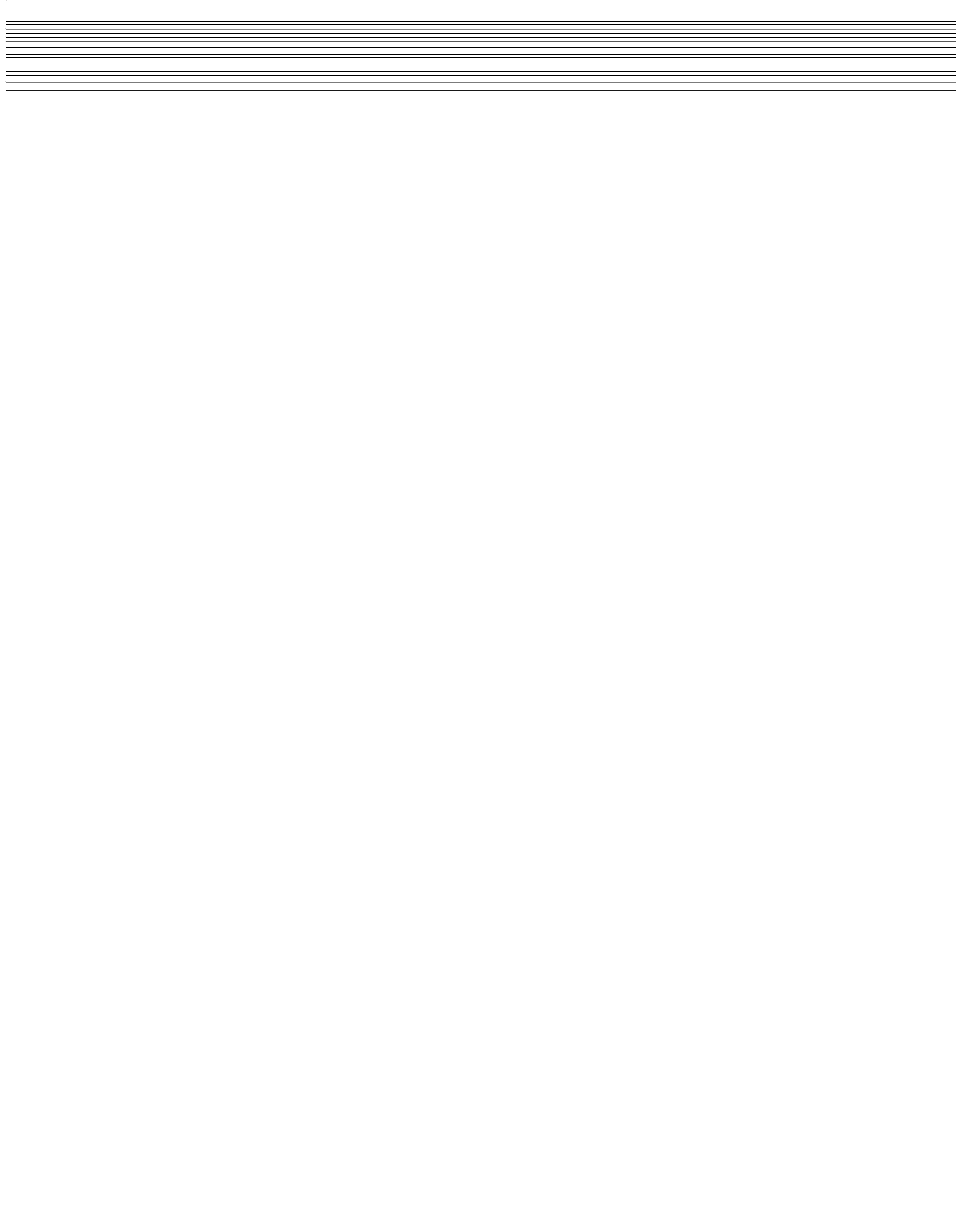BEFORE THE ILLINOIS POLLUTION CONTROL
~
RECE~VED
D~JIiflIJ
CLERK’S OFFICE
COUNTY
OF
JACKSON,
)
FEB
1122005
STATE
OF ILLINOIS
Complainant,
Pollution Control Board
vs.
)
AC
No.
2004-064
)
EGON
KAMARASY,
)
Respondent.
RESPONDENT’S
POST-HEARING
BRIEF
I
INTRODUCTION
The County of Jackson (“County”) seeks to
impose civil penalties for three (3)
alleged
violations ofthe Act.
Mr. Kamarasy denies
that his actions violatedthe Pollution
Control Act.
II
FACTUAL AND PROCEDURAL BACKGROUND
For the sajçe of brevity, the respondent refers to and
incorporates herein the Factual and
Procedural
Background
section
of
his
Memorandum
Supporting
Petition
to
Contest
Administrative
Citation filed at the hearing on November
22, 2004.
It accurately states
the
evidence that was adduced at the hearing.
Don
Terry,
a
solid
waste
inspector
employed
by
the
Jackson
County
Health
Department, with seventeen (17) months on the job’ and no prior relevant experience
(Tr.
7
—
8,
18
—
19), testified that he conducted a five-minute inspection of the site2
on
March
25,
2004,
1
At
the time of the
inspection
of
the
site
involved
in
this
case
and
on
the
date of his
written
report that
was
admitted into evidence,
Mr. Terry had been a solid waste inspector for only approximately eight (8) months.
2
“The
site”
shall
mean
and
refer to
the
property
owned
by
the
respondent
that
is
identified
in
the
Administrative Citation.
I
Respondent’s
Post
hearing
Brief
I
~
and took two photographs (Tr.
15;
P
12) that were introduced into evidence.
(P
24
-
26).
The
inspection was done only visual, and no testing or sampling was done (Tr. 30)
Based upon this cursory inspection, Mr.
Terry prepared a written report and concluded
that at least ten (10) violations of the Act had occurred. (P
14)
Though
on
direct examination
he stated that this, report accurately reflected the condition of the site and his
observations
(Tr.
17), on cross-examination, Mr. Terry admitted that he saw no dumping occurring at the site
and
only assumed that the material
he observed had been dumped
there. (Tr.
25
—
27)
He did not
know the origin of the material,
except for what
Mr.
Taylor had
told him.
(Tr.
25
—
27,
29)
And, his intervieW with Mr. Taylor during
a previous
visit indicated that the material in
the pile
was brush and lavnlscape
waste that had been cut and gathered from the respondent’s
farm.
(Tr.
27
—
28)
Interestir~gly,in this case, the
complainant issued
no
written
violation notice
to
the
respondent, as it had
done
in January with respect to
the site
involved in AC 04-63.
(Tr.
41
—
42,61)
OnMarch~30,
2004, the County filed theAdministrative
Citation against the respondent
in
this
cause.
Although
containing more legal
conclusions than facts,
the
Administrative
Citation charges ~therespondent
with
three (3)
violations of the
Act:
(1)
that the respondent
caused or allowed open dumping that resulted in litter at the site in
violation of 415
ILCS
§
5/2l(p)(l);
(2) that
the respondent caused or allowed open
dumping that
resulted in
open
burning at the site in violation of415 ILCS
§
5/21(p)(3);
and
(3) that the respondent caused or
allowed open di~mpingat the site that resulted in the deposition of
general construction or
demolition, or clean construction ordemolition debris in violation of415 ILCS
§
S/2l(p)(’7).
Therespondent timely filed an
Amended Petition
to
Contest Administrative
Citation in
which he denied ‘that his conduct violated the Act.
At the hearing, Mr. Terry testified on
direct examination
that on
March
25,
2004, he
observed a ten (10) cubic yard pile
that contained ash, charred remains of lumber, mattress
springs and charred metal. (Tr.
14
—15)
Page
2
R~spo~4ént’s
Jo~t~h~riñ~
Urief~:
Mr. Terry testified further “there are
no dwellings on
the
site”
(Tr.
16), but
that the
respondent owned land adjacent to the site. (Tr.
17
—
18)
Mr. Terry also testified that he saw no evidence that the material he found
on
the
site
had been transported there from
elsewhere and that the charge made in his
investigation report
(P 14) was merely assumption, not based upon direct evidence. (Tr. 25
—
26)
Mr. Terry further testified that during a visit to
the site made on
March
11,
2005,
he
spoke to Mr. Taylor, who stated that he was
getting ready to
burn brush
that he had
cut on
the
respondent’s farm. (Tr.
26
—
27)
At first, Mr. Terry testified that he told Mr. Taylor not to burn the brush. (Tr. 27)
Then,
Mr. Terry testified that he told Mr. Taylor he
could burn the landscape waste,
but
he
had
to
remove the couch~r
mattress from the pile. (Tr. 28)
Then,
when confronted with the
statement
in his report that’he had told Mr. Taylor that the pile was
not
to
be
burned because burning
it
would violate the Pollution Control Act, Mr.
Terry
admitted
that this
was what he
told Mr.
Taylor on March:~1
1, 2004. (Tr. 28)
Mr. Terry testified that no tires were in the pile.
(Tr. 28)
Mr. Terr~/
stated that he saw no open burning on March 25, 2004, only what he believed
to be evidence that a fire had occurredpreviously. (Tr. 29)
Mr. Terry testified that the pile of materials at the site measured ten (10) cubic yards.
(Tr. 38)
Finally, ~
Terry
testified that he could see this small pile
with the
naked eye from the
public road,
Greeh
Ridge Road
(Tr.
38), but
admitted he had to
exit from the public road
and
travel north some distance to
a point where he entered
the respondent’s
property and
passed
through a gate to reach the site. (Tr.
38
-
40)
He had no
warrant.
(Tr.
39)
He did
not have the
respondent’s permission to enter onto the private property. (Tr.
42)
Based upbn this evidence, the County asked the Board to find three (3) violations
of the
Act and to
assess ~afine in the amount
of One Thousand
Five
Hundred and
no/lOO
Dollars
($1,500.00) for each violation.
Page
3
Respondent’s
Post-hearing
Brief
The respondent denies violating the Act and specifically denies causing any
pollution.
(Tr. 60)
The
site is rural, unimproved land that is used to pasture horses and for hay
production.
It
is part of the respondent’s 200-acre farm.
(Tr. 59)
Except for
the respondent’s
residence
there are no other residences nearby and the land is located within the unincorporated area of
Jackson County. (Tr. 59
-
60)
The respondent’s home is adjacent to the tract of land on
which
the site is located. (Tr.
59)
The respondent testified that he
did
not
believe that
he
was
violating the
Pollution
Control Act in having a burn pile for household,
landscape
and
agricultural
waste
generated by
his household and: on his farm on which the site is situated.
(Tr. 60)
All of the materials shown
in
the inspector’s
photographs of the
site
came
from the
respondent’s
farm
and
home.
(Tr.
61,
62)
The
respondent denied
that
any
window
air
conditioner was
ever in
the pile.
(Tr.
63)
The respondent admitted that old furniture from his
home had been hiirned in the pile (Tr.
63), but all other stuff in
the pile that was ever burned
was landscape and
agricultural
waste
that
was
generated on
the respondent’s
horse farm, such
as fence posts, brush and fallen trees.
(Tr. 62—64)
Metal fence posts were put in the burn pile
to remove poisorrivy and other vines. (Tr. 64)
No tires were ever burned. (Tr. 71)
Mr. Taylor removed the mattress, shown in one of Mr. Terry’s photographs
taken on
March
11,
2004, prior to burning the
pile.
(Tr.
61, 70
-
73)
Mr. Taylor testified that a couch
and a mattress that were
in
the pile on
the
site on
March
11,
2004
had been stored by
the
respondent in
a “l~an-toagainst the barn”. (Tr. 72)
Mr. Taylor also
testified that there was a metal piece of a
sink in
the pile
that
was
burned, but no air conditioners or laminate counter tops. (Tr. 72)
The pile
shown
in
Mr.
Terry’s
photographs
is
located more than 500
feet from
the
public
road and Was
not visible or observable from
the public road.
(Tr. 62)
One had to
exit
from the public road, travel
approximately 200 feet along
a
private lane, then pass
through
a
gate, and traverse‘another 300 feet to reach the site. (Tr. 62)
:
.
Respondent’s
Page4.
Post-hearing.
•.
Brief
Therespondent
gave no
permission
to
the complainant to
enter onto
his
property.
(Tr.
60)
•
III
ARGUMENT
A.
The’ complainant
violated
the
Fourth
Amendment
by
entering
onto
the
respondent’s
land for
the purpose
of
inspecting for
illegal
debris
piles
without either
the
respondent’s
consent or obtaining a search warrant.
The respondent argued in his Memorandum Supporting Amended Petition
to
Contest
Administrative
Citation (“Resp. Memo”) that a search occurred without a warrant and in
the
absence ofexigent circumstances that might excuse a warrantless search.
(Resp. Memo,
6— 8)
The complainant argues in its post-hearing briefthat the inspector stated that he could
see the pile ofmaterial from
the public road
and
that the respondent had
not met
its burden of
persuasion
that’ exigent
circumstances
did
not
exist
to
justify
a
warrantless
search.
(Complainant’s Post-Hearing/Closing Argument, 9)
Howevex~’it
is
the burden of the complainant to
show
the exigent circumstances that
justify warrantleS~
searches.
It
is
not
the burden of the landowner to
show
that no
exigent
circumstances existed.
And, while the inspector testified that he
could
see
the pile
from
the public
road,
the
respondent flatlyic~ontradicted
that assertion.
The inspector’s own testimony casts
doubt
on
the
credibility ofhis
statement that the pile was visible from the public road,
since the inspector had
to drive offthe public road, onto a private lane, and through a gate to reach the pile.
In any event, even if thepile was visible from the public road, there was no
showing that
the pile would or’rnight
disappear within the time
it might take
to
obtain
a warrant to
enter the
premises and condUct a search.
In fact, the inspector claims the pile was present more than
two
weeks
earlier when he made a similar, warrantless entry
and
search
of
the
respondent’s
Page
S
R~spondent~•s~PO~t-hearing
Brièf
premises for violations of the Pollution Control Act.
The complainant presented no
evidence of
exigent circumstances to justify the warrantless search.
The so-called “broad authority” to
enter onto private
property
to conduct searches that
is
claimed by the’ complainant in this case is defied by the
cases, the Illinois
Constitution
and
the Pollution Control Act itself.
The inspector’s
authority in
this
area is
strictly
limited
by
constitutional and’statutory guidelines.
It is, indeed, not “broad”
as the complainant asserts
in
its closing argument, but is sharply constrained by constitutional limitations.
The charges should
be
dismissed
due
to
the
illegal
entry upon
and
search of
the
respondent’s property by the complainant, which violated not only
the Illinois Constitution,
but
also the
Pollutioh’ ‘Control Act
itself,
which
expressly
imports constitutional
limitations
into its
statutory framework.
B.
The.preponderance ofthe evidence does not show that the respondent caused or
allowed open dumping on the site.
The resptrndent first
asserts
in his
Memorandum Supporting
Amended Petition
to
Contest Administrative Citation that since none ofthe stuff in the pile
was “garbage,
sludge
from a waste treatment plant, water supply treatment plant, or air pollution
control facility”,
the
complainant muSt~
mean to
incorporate
all
the
items
in
the
pile
under
the
catch-all
phrase
“discarded matefi’al” and that, while that phrase could be stretched
to
mean
almost anything,
the Illinois legislature surely did not intend the Board to consider vegetative
matter, such as tree
branches
and
landscape
waste,
set
out
in
a
farmer’s
burn
pile, as
the
kind
of “discarded
material” that creates or constitutes an
“open
dump”.
(Resp. Memo
8).
Then, he argued
that
open dumping requires
creating a “disposal
site” and
that any
interpretation of the phrase
“disposal
site” that
included every homeowner or farmer
who burned
a
pile
of
leaves or
branches would render the Pollution Control Act so broad as to
be
arbitrary
and unenforceable.
(Resp. Memo 8 -~:9)
Third,
the’respondent contends that the
“open
dumping”
element of
the
violations
charged requires
‘a
showing that
the material
placed on
the site “entered
the environment”,
Page6
.
.
Respondent’s
Post-hearing
Brief
•
emitted into the
air, or discharged into the waters
in
some
demonstrable
way.
The respondent
asserted that
the pile
of materials did
not
constitute a disposal
site
since the
complainant’s
evidence did not show
that the respondent placed the material
on his own land in such a
way
that it, or any constituent thereof, was entering the
environment or
emitting into
the
air
or
discharging into the waters.
(Resp. Memo 9
—
13)
The com~1ainant
restates
its
denial
that
any
actual pollution
or
entering
into
the
environment is required for something to constitute a disposal site, which
is
a prerequisite
for a
finding of “open dumping”. (Complainant’s Post-Hearing/Closing Argument,
10)
But, the complainant’s position fails to explain why a violation of the Pollution
Control
Act does not require some form of pollution and renders
superfluous and
nugatory
language
that the legislature included in the definition of the terms involved in this case.
C.
The respondent did not cause
of allow open
dumping that resulted in “litter”
at
the site.
The
respondent does not believe
that
his
act of
burning
some
stuff
on
his
own
homestead, in a location not visible from
the public
road,
and
in a manner
that did
not cause a
public nuisance,lean reasonably be characterized as causing or resulting in
“litter”.
The respondent argued in his Memorandum Supporting Amended Petition
to
Contest
Administrative
Citation that the legislature, by adding the phrase “that resulted in litter”
in
§
21(p)
of the Pollution
Control
Act,
intended
that
not
all
items
left
at a
“disposal
site”
constitute “1itter’~•
and,
that the Board,
in
adopting
the
definition of “litter”
used in
the Litter
Control Act, put.the respondent and
others
on notice
that causing litter under the
Pollution
Control Act means exactly the same thing as unlawful litter under the Litter
Control Act.
(Resp.
Memo,
13
—
17)
He then pointed
out that unlawful litter under the Litter Control
Act, in cases
of depositing materials on one’s own land, requires a
showing that
the respondent’s
actions
created a public
health or safety hazard,
a public
nuisance or
a
fire hazard;
and,
in
cases of
allowing
materials
to
accumulate
on
one’s
own
land,
a
showing
that
the
accumulation
Page
7
..
.
.Respond~llt’s Post-heari~gB~ief”. H
constitutes a public nuisance or “may be blown or otherwise carried by the natural elements
on
to the real propeity of anotherperson”. (Resp. Memo,
17)
No evidence supporting a finding ofpublic nuisance, public health, safety or fire hazard,
or blowing or scattering onto the real property of others
was presented at the hearing and
none
is contained in the record.
Therefore,
the respondent should not be found
in
violation of the
Pollution Control Act for his activities at this site.
Not surprisingly, the complainant restates its
argument
that finding
a
violation of the
Pollution Control Act forcausing litter does not
require finding that the landowner who
places
materials on his
own land created a
public
nuisance, health,
safety or fire hazard, or that the
accumulation of thematerials constituted a public
nuisance or blew or scattered freely onto the
property ofothers~
(Complainant’s Post-Hearing/Closing Argument,
10)
But,
the result of the complainant’s position
is
to
emasculate any
standards
or limits
from the Pollution Control Act, cause constitutional
infirmities of a
lack of due process,
and
interfere with th’e’Separation of
Powers
provisions
because the
discretion
of the
executive
branch, the complainant
and its
inspectors,
is
unbridled and subject to
arbitrary
and capricious
application.
For this reason, the complainant’s position is infirm and should be disregarded.
D.
The respondent
did
not
cause or
allow
open
dumping
that
resulted in
open
burning atthe site’in violation of the Act.
The resptindent argued in his Memorandum Supporting Amended Petition to
Contest
Administrative
Citation that
open
burning of “agricultural waste”,
“domicile
waste”
and
“landscape
waste”
does
not
violate the
Pollution
Control Act
because
those
activities are
exempted by IEPA regulations. (Resp. Memo,
18— 19)
The
complainant argued that the
cited
exemptions
do
not
apply
to
administrative
citations brought.under
§
21
of the Act.
(Complainant’s Post-Hearing/Closing Argument,
11)
However, the complainant cites no authority for its position.
Page
8
ReSpOndent’s
POst’~hearinEBrief”:
‘1
But, the civ erreaching ofthe Act and
the disrespect for the
law that
wifi result if
the Act
is interpreted so
~s not to allow burning of agricultural, household
and
landscape waste
in the
circumstances
outlined
by
the
cited
IEPA
regulations
is
sufficient
justification for
the
application ofthOse exemptions to the Act.
The complainant’s position on
this
issue,
as
with
the
other issues
in
this
case, far
overreaches
the ~asonable
limits of the Act and
would
seek
to
create in
the Act a
supreme
vehicle for behavior control without respect to the legislative aim ofenvironmental protection.
Assessing
a
huge fine for burning such a
small
pile
of
landscape,
agricultural and
household waste in an isolated,
rural
area, as the complainant urges in
this
case,
should
not be
countenancedb~’the
Board
because it
will send
the wrong message and
will
encourage the
complainant
to
ignore the significant environmental
problems
within
its
jurisdiction
and
concentrate the power of the State upon the homeowner
and
small
farmer for burning
leaves
and tree branche~,
B.
The
respondent
did
not
cause
or
allow open
dumping
on
his
own land
that
resulted in the dd~Sositionof general construction or demolition
or clean construction
debris
in
violation oftheAct.
The respOndent argued in his Memorandum Supporting Amended Petition
to
Contest
Administrative citation
that the
definitions of the terms “general
construction or demolition
debris”
and
“clt’~nconstruction or demolition
debris” require
at least
some
circumstantial
evidence that some construction or demolition activity was taking place
that resulted in
the
deposition of the riaterials in question and no evidence was presented showing
anything except
that some items from the respondent’s agricultural
operation
and
household were in
the pile at
the
site and no
cOnstruction or demolition activities
were shown,
except for the replacement of
old fence posts. (Resp. Memo,
19
—
21)
The respondent further argued that the complainant,
who bears
the burden of proof in
showing that there was
construction or demolition
debris
in
the small pile onthis site, could not do so. (Resp. Memo, 21)
It did not.
Page
9
Respondent’s
Post hearing
Brief
The comi~1ainantargues that the lumber and old fence posts it contends
were
in
the pile
meet
the
definitions
of
construction
or
demolition
debris.
(Complainant’s
Post-
Hearing/Closing Argument,
11)
But,
the “complainant
again
ignores
the
exceptions
within
the
Act
for
burning
agricultural, landscape and household waste and urges that even if the items mentioned might be
burned under th~Act,
the act of depositing
them on one’s
own land for the purpose of a burn,
is a violation of ‘the Act.
This is an
illogical
and
untenable position.
The Board
should
not
authorize it.
F.
The’respondent is denied due process oflaw if he is found to have violated the Act
for depositing thè~materials
found at the site for the purpose of burning them.
The respondent argued in his Memorandum Supporting Amended
Petition to
Contest
Administrative Citation
that he
was lawfully entitled to burn waste generated from his
farming
operations, landscape waste and
domicile waste on his
own land, therefore,
it would
violate his
due process rights if the Act is
interpreted in such a way that the act of depositing these
items
on his
own land fOr the purpose of disposal by burning
constitutes
a violation, but the disposal
by burning is not’a violation because there would be no
way for the respondent to reasonably
c~etermine
whether his conduct was lawful or not. (Resp. Memo, 22—23)
Because the collecting of the material for burning in this case and
the act of burning the
materials was really
a single continuous
act, the Board
should
find
that the
collecting of the
materials (1) wasnot an act ofopen dump, (2) did not cause
or result
in
unlawful litter,
and
(3)
was not
an act
of•depositing
construction or demolition debris
in
the
sense intended by
the
Legislature whenitpassed the Pollution Control Act.
PagelO
:
Respondent’s
Post-hearing
Brief:
G.
The complainant’s position in this
case
and
the interpretations
it urges the Board
to take of the Act deny due process of law by ignoring or diminishing the notions
that some
kind ofdemonstrable environmental harm is
required to
find
a violation of the
Act:
and
violate
constitution principles of Separation of Powers by substituting the inspector’s “I know it when
I see it” definition oflitter
and open
dumping rather than carefully applying
the
guidelines
set
forth in the Litter Control Act.
The respondent here incorporates expressly and
reiterates the
arguments contained in
Respondent’s
Memorandum Supporting Amended Petition to Contest Administrative Citation
that
show
the
constitutional
infirmities resulting
from
the
complainant’s
positions
and
interpretations urged on the Board.
For those.reasons, no
violations
alleged by
the complainant can be
found based on
the
record in this case~
IV
CONCLUSION
The administrative citation filed against the respondent
in
this
case overreaches
the Act
and,
unless repr~sedby
dismissal by
the Board,
can foster nothing
but
disrespect for an
importantlaw.
The inspdctor discovered the pile
at the site in question only
by
conducting
an
illegal
search ofthe respOndent’s property.
Therefore, all evidence of the existence of this
pile should
be suppressed and disregarded.
The pile
of material
in
question
did
not
constitute a
“disposal
site”
or
an
“open
dump”, as those terms are defined in the Pollution Control Act.
There was no general
construction or demolition debris
within the pile:
only
lumber or
wood items that came from the respondent’s farm and homestead.
The pile ‘itself would not be considered “litter” in violation of the
Litter Control
Act.
Therefore, it cannot be considered “litter” in violation ofthe Pollution Control Act.
Pagàll
Respondent’s
Post-hearing
Brief
It was an abuse ofdiscretion to charge the respondent
with three separate
violations for
one allegedly wr~ngfu1act.
The essential “crime”, which the respondent “committed”, if any,
was to
create a burn site on his farm to
dispose
of household,
landscape,
and agricultural
waste
generated on the farm by his farming and normal household activities.
But
that
open
burning
charge
must
be
dismissed
because
the
IEPA
regulations
expressly permit this kind of burning activity,
provided certain conditions
are
met, which the
respondent obviously did meet.
The only way for this
Board
to
convict the respondent on
any of these three counts
would be to
interpret the
legal terms “open
dump”
and
“litter’
so
expansively
and
arbitrarily
as to
violate the respondent’s
due process
right to
be
able
to
reasonably anticipate what
is
illegal
and what is not.
In addition,
the
interpretation
would have
to be
so broad
as to give the
administrative branch ofthe government too much
discretion regarding both the decision about
what is litter and the amount ofpenalties to be imposed for a particular act.
This
would
violate
the Constitutional principle of Separation of Powers.
Therespondent did not violate the Act as alleged in theAdministrative Citation.
This who1~
case involves a pile of landscape
and agricultural
waste
measuring only ten
(10) cubic
yards:
Yet,
the
complainant attempts
to
extract a
fine
in
the amount
of Four
Thousand Five hundred and no/100 Dollars ($4,500.00).
In addition
to
the
legal
and
constitutional principles
that
preclude
any
finding
that
violations ofthe Act occurred in this case, one cannot help but be reminded of the age-old legal
maxim that served as a defense for a mythical, young lawyer in
the following adage:
“There
was a young law~èr
named Rex, with diminutive
organs of sex.
When charged with exposure,
retained his composure.: ‘de minimus non curat lex’.”
The complainant must not be permitted to make therespondent’s small burn pile
on his
farmin a secluded; rural area into a multiple count case under the Act.
Page
12
Respondent’s
Post~hèaring
Brief
For
all
of the
foregoing
reasons, the
administrative citation in
this
case
should
be
dismissed.
Dated this
31st day of January, 2005.
EGON KAMARASY, Respondent
By
‘GregoryA.
e
,IARDC#2893061
Attorney for respondent
LAW OFFICES OF GREGORY A. VEACH
3200 Fishback Road,
P. 0. Box
1206
Carbondale IL
62903-1206
Telephone:
(618) 549-3132
Telecopier:
(618) 549-0956
e-mail: gveach@gregveachlaw.com
Attorney for respondent
Page
13
Respondent’s
Post-hearing
Brief
DECLARATION
OF
SERVICE
BY
MAIL
I, the undersigned, declare:
I am over eighteen (18) years of age, employed in the County of Jackson, State of
Illinois, in which
county the within mailing occurred, and not
a party to
the subject cause.
My business address is: 3200 Fishback Road,
P. 0.
Box
1206,
Carbondale,
Illinois
62903-
1206.
I served the following document, Respondent’s
Post-Hearing Brief
(AC 04-64), of
which true and correct copies thereofin the cause are affixed, by placing the original
and
four (4) copies thereofin an envelope
addressed as follows:
Dorothy M. Gunn, Clerk
Illinois Pollution Control Board
State ofIllinois Center
100 West Randolph Street
Suite 1~F-500
Chicago IL
60601-3218
and one
(1) copy in an envelope addressed as follows:
Jackson County State’s Attorney
Jackson County Courthouse, 3d Floor
Murphysboro IL
62966
ATTN. Daniel Brenner, Assistant State’s
Attorney
Each envelope was then sealed and with the postage thereon fully prepaid deposited
in the United States mail by me at Carbondale, Illinois, on January 31,2005.
I declare under penalty ofperjury that the foregoing is true and correct.
Executed on January 31, 2005 at Carbondale, Illinois.
~
LAW OFFICES OF GREGORY A. VEACH
3200 Fishback Road
P. 0.
Box 1206
Carbondale IL
62903-1206
Telephone:
(618) 549-3132
Telecopier:
(618) 549-0956
e-mail: gveach@gregveachiaw.com















